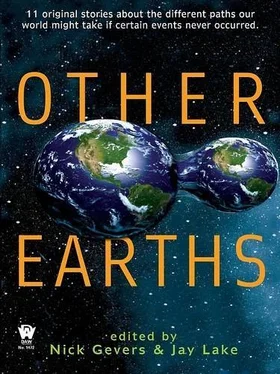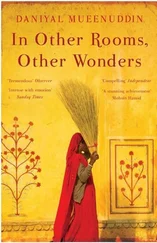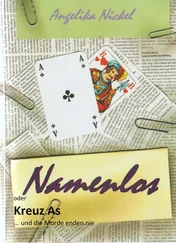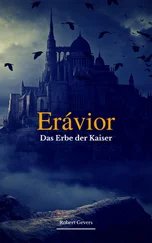“Some of them. My real friends are right now answering some awkward questions back at the temple.”
“I see,” she said tartly. “So this was an inside job?” Mark smirked, as though he were about to say something glib, but then his fingers touched the alligator-hide bag, and the smirk disappeared, as though it’d been slapped right off his face. His eyes gleamed. “A job like this can only be arranged on the inside. I was just one link in the chain. I was supposed to carry it from Solomon’s to the Fountain and Water Gate, hand if off from there.” He swallowed in pain and told Em to go around the Hippodrome, and for God’s sake, speed up.
“But the plan’s changed,” Em said.
“Not really. I was going to backstab my partners and keep it for myself.”
Em slammed the brakes, skidding to a stop in front of the flashing, spinning neon stars of the Sepulcher of David, and popped open her door.
Mark reached out and gently touched her hand with his dry old fingers. “I can’t drive myself,” he said.
“It’s the Templars , Mark.”
Mark smiled, and it reminded Em so much of her Daddy’s smile when he was drunk and sad and most vulnerable.
He indicated the bag in his lap with a dip of his chin, a gesture that resembled the bow of a penitent. “What right do they have to possess something like this? The ground Solomon’s stands on is sacred to my people, and they took it from us by force, burned our temple, and built their own from the leftover rubble. The thing in the bag was kept safe for hundreds of years before the Templars came along.”
“And what do you plan to do with it?”
“I was going to keep it just as safe.”
Em would have been less angry if he’d said he were going to sell it. “You mean you were going to lock it up in a vault away from human sight,” she said, “like a manacled skeleton in a dungeon, where it can’t do anybody any good. It’s, it’s …”
“Bad showmanship?”
Emily crossed her arms over her chest and glared at the steering wheel. “People have a right to see,” she said, her voice almost as strong as her conviction.
Mark licked his lips. Em heard them crackle, and she searched the floorboards for water but found none.
“It’s not up to me what happens to the thing in the bag any more,” he said. “I think that’s why I found you in the streets of the Holy City, Em. Because you’re going to bring it to a better place.”
Em saw the look in his eyes. “You mean you’re going to bring it. Or we—”
“I’ll get you out of the city,” he promised. “After that, it’s up to you.”
Em said another word not fit for her ears and slammed the door shut. She pulled back into traffic and let Mark guide her the wrong way down one-way streets. He told her not to interrupt, and in addition to driving directions, he whispered other things to her as well. He told her things he thought might help her once she got out of the city. He told her things about God, some of which was Sunday school stuff to her, and other things from his people’s beliefs, their corrupted faith, as Father Thomas back in Oasis Town would have called it. Mark seemed confused, as if he were trying to work things out for himself but was too tired to do any good thinking. He kept stroking the bag. Em half-hoped and half-dreaded that he would open it up and look inside and that she might catch a glimpse. His speech became more and more interspersed with words of Navajo, until Em could no longer understand what he was saying, but toward the end he asked her in English to bury him before sun-down. Em promised she would.
After he died and the sweat on his skin dried, his face still seemed to shine.
The next morning, the Chevy ran out of gas on a hot gravel track in Atomic Golgotha. White earth, lightly tinged with pale green, spread out in dizzying shimmers in all directions. Even with the sun low on the horizon, heat leached through the windshield, cooking the oxygen in Em’s lungs. Em grew up knowing the desert around Oasis Town, and she knew her best chance of survival lay in staying with the truck. By noon, it could be 120 degrees, and the truck would provide a little shade and would make her easier to find. But that was the problem. If the Templars tracked her out here, they would take the bag and its contents and torture and rape her, just to make a point. The truck was a bright red spot on the bleached earth, as noticeable from a distance as a bloodstain on a white altar cloth.
In the backseat she found a Navajo tourist blanket that Mark had been using as upholstery. Except for the generations of dust and grime embedded in the fabric, it was identical to the ones she sold in the reptile farm’s gift shop. She draped it over her head, and even though it stifled, keeping the sun off her was critical. The blanket hung far enough down that, by threading one of her shoelaces through the handles of the alligator-hide bag and through her belt loops, she could walk with it concealed on her hip.
“This is a lot of trouble for nothing,” Em muttered. Within hours she’d be a corpse, anyway.
Perhaps three hours later, Em awoke from a sleep of fever dreams about snakes and alligators and great radioactive lizards stomping the Holy City at the behest of God. Her head pounded with dehydration. Her tongue was wood. She looked up from the sand, where she’d fallen, to find herself surrounded by men in robes colored the blues and greens of the sea. They stood beside llamas bigger than those Em had ever seen at petting zoos, bigger even than any she’d seen in pictures in National Geographic . The men wore seashell necklaces and elaborate, spiky wreaths of dried date palm fronds around cloth headcovers. The blades of scrap metal they carried glinted painfully in the sun.
Only when the animals’ pungent reek reached her nostrils did Em know the llamas and the men were not a mere vision.
Em swore in a parched whisper that she’d die before she let these Hawaiians take her bag.
For a time, they consulted with each other, their language strange to Em’s ears, full of repeated syllables and rhythmic halts, but she recognized an argument when she heard one in any language. Some of the men gestured at the heat mirage on the horizon. Others pointed their weapons at her. If Em had to guess, she would have said the two sides of the dispute could be summed up as “kill her now or take her home and kill her there.”
This went on for at least ten minutes. Em couldn’t be sure, not only because she wasn’t wearing a watch but because she had fainted at least once during the discussion.
When the conversation came to an abrupt halt, one of the men tightened his grip on his axe, the letters “USAF” faded but still visibly stenciled on the blade, and raised it in the air like Daddy about to slaughter a chicken. He came forward.
Em screamed, trying to tell them to wait, but it came out in a choked, inarticulate shriek, not unlike a chicken upon whom the axe has fallen. She tore open the blanket, plunged her hands into the bag, and held its contents aloft, the sun reflecting off the treasure in blinding rays. The man with the axe made a sound almost exactly like the one Em had and threw his forearm across his eyes.
The awed silence that followed lasted perhaps the span of twenty heartbeats.
Then, “Put it back in the bag,” one of the men said. “You’re coming with us. If you try to run, we’ll cut your feet off.”
They led her across the sand to a sprawling shanty village of caliche huts and rusted travel trailers, with skeletal corrals for the llamas made of sun-grayed wood. The sand glittered painfully, sprinkled with fragments of greenish glass, fused sand from the bomb blasts that had given Atomic Golgotha its name.
Читать дальше












